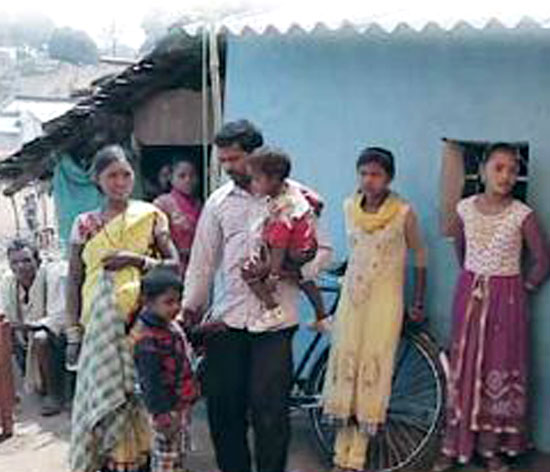
Ramsingh Kabadi, a tailor in Badchatrang village of Kalahandi district in Odisha, used a manual sewing machine. Due to lack of power supply, he was unable to keep up with his orders, especially during the wedding and festival seasons. The Trusts advised him to switch to a motorised sewing machine using a solar-powered system — a solution that worked well in Karnataka, where tailors using AC motor machines shifted to DC motor solar-powered machines.
These tailors in Karnataka made an additional monthly income of Rs2,000 as they could work for longer hours, thereby increasing production. In Odisha, the proposal looked at shifting from manual to motorised machines; thus increasing productivity almost 1.5 times.
The solution benefitted Ramsingh in three ways:
- Increase in confidence to take more orders because of increase in productivity.
- More efficient use of time led to his finishing work faster, making time for other activities.
- Well-being, reduction in the drudgery of operating a manual machine.
After a thorough analysis, an efficient sewing machine with a 60W DC motor was selected as a solution, along with a solar-powered system. Solar panels of 60Wp with 30Ah batteries were chosen to provide for eight hours of backup per day. Ramsingh decided to invest in the energy efficient technology, and the first step towards this was to apply for a loan. The process was new to Ramsingh. He initially felt overwhelmed to even enter the bank. But over a period of five months, and after several visits, he became familiar with the bank’s processes and felt confident to deal with them. The Trusts put in efforts to conduct a need assessment, evaluate technology, connect him to the bank and facilitate the bank processes.
Today, Ramsingh is able to meet the seasonal demands and keep up with orders. Delighted by the encouraging results, he says, “I have been able to increase my productivity 1.5 times per hour. My earnings have increased by Rs2,500 per month, and I expect them to go higher during the festival season.” Further, a solar light in his shop will allow him to work till late in the evenings, thus allowing him to take a large number of orders.
A month after the intervention, Ramsingh began paying his monthly instalments on a regular basis. He has now approached the bank for a second loan to expand his tailoring shop and buy another machine so that his brother can join him in his venture. Thus, a simple intervention like a solar-powered sewing machine, through appropriate financial linkages, can transform the way tribal communities access new means of livelihood, increase productivity and boost income.
This story has been taken from the Sir Ratan Tata Trust and Allied Trusts Annual Report 2016-17.
